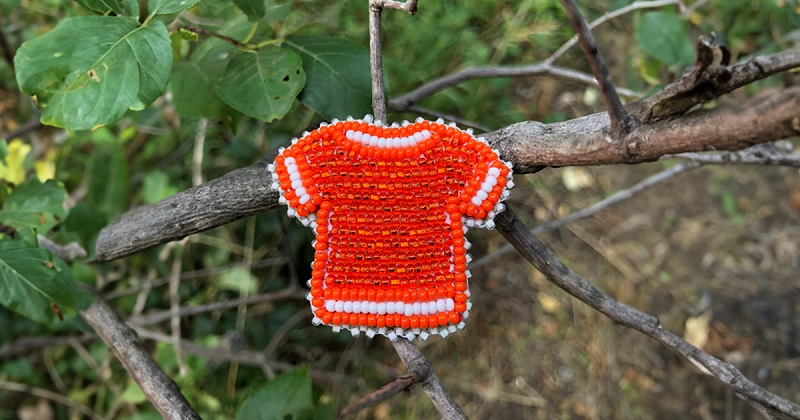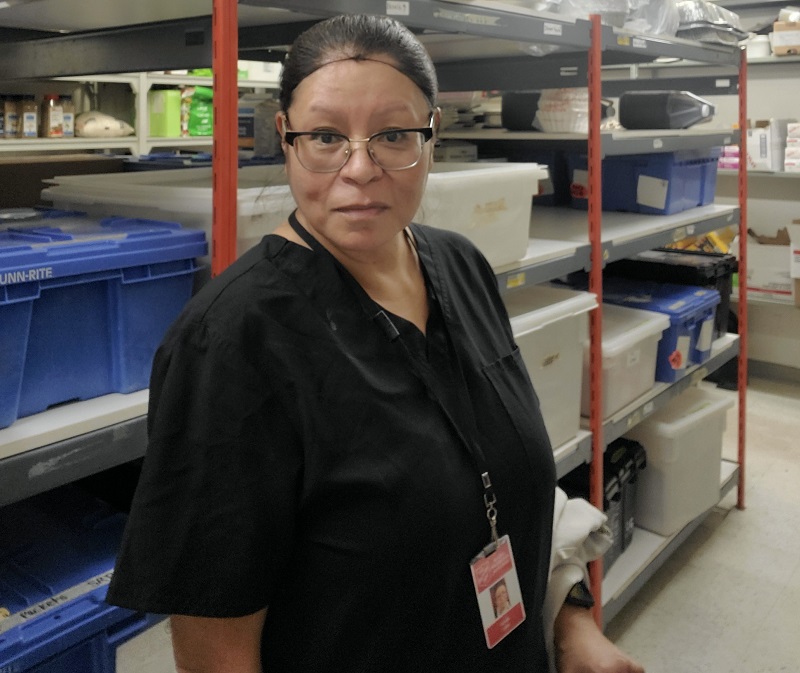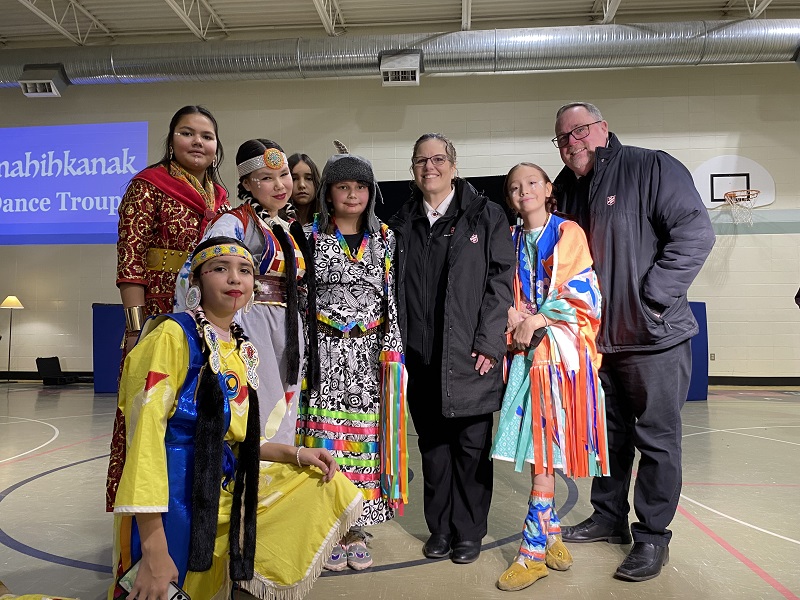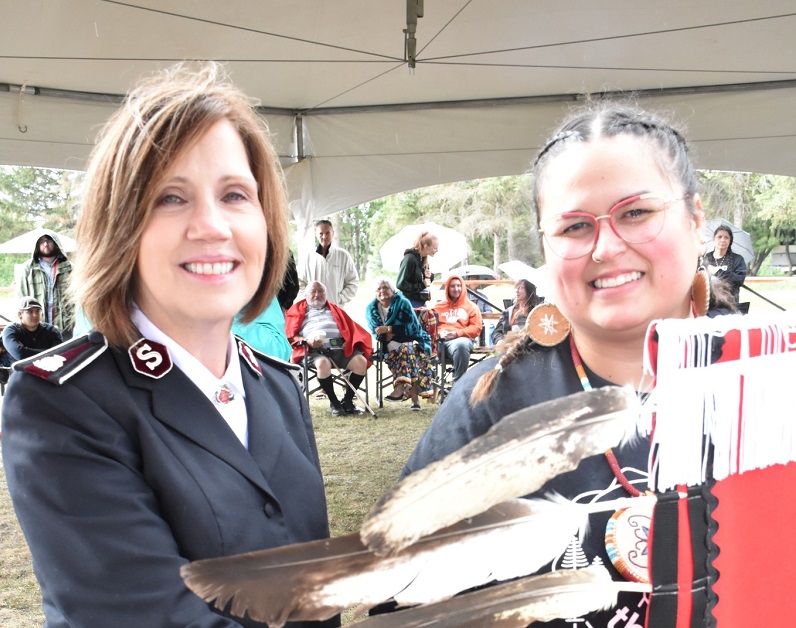How Three Ministry Units are Taking Steps on the Journey of Reconciliation

Each year, September 30 marks Canada’s National Day for Truth and Reconciliation, also known as Orange Shirt Day, to raise awareness of the impact of Indian residential schools, remember the children who never returned home and honour survivors, their families and communities. The Salvation Army in Canada and Bermuda is committed to recognizing this day and taking intentional steps on the journey to reconciliation. Learn how three ministry units are walking together in relationship.
Saskatoon
According to a 2021 Statistics Canada report, more than half (55.5 percent) of all First Nations people live in Western Canada. In Saskatchewan, where my wife, Lieutenant Angela Kerr, and I serve as corps officers/pastors, Indigenous people account for 14.5 percent of the province’s population. We are blessed to be on the journey of reconciliation, together with our fellow Salvationists/members, in Saskatoon.
In our ministry, we have been intentional in seeking ways we can engage in reconciliation with Indigenous Peoples and lands. In 2023, we began partnering with St. Frances Cree Bilingual School in Saskatoon to provide backpacks and school supplies for Indigenous students, as well as supplying non-perishable food items for the school’s community pantry to assist these same students and their families who are struggling to make ends meet.
On September 28, my wife and I, along with members of our team, will attend a pancake breakfast hosted by the school and will meet with staff, students and families in the spirit of truth and reconciliation.
Lieutenant Derek Kerr is the corps officer at Saskatoon Temple.
Niagara Falls, Ont.
Each year at Niagara Orchard Community Church, we observe Orange Shirt Day. Employees here in Niagara Falls and at our Fort Erie, Ont., site wear orange shirts to show respect for Indigenous nations, recognizing the atrocities that took place at residential schools in our country.
For the last two years, we have held a specific time of remembrance and prayer during our Sunday worship gathering to honour this day. We begin our service with a land acknowledgment, recognizing that the land where we gather was inhabited first by Indigenous nations. We watch a video to educate and remind us about the importance of the National Day for Truth and Reconciliation. And we observe a moment of silence to pause and remember those children who were so deeply affected by the residential school system, some of whom even lost their lives.
Over these last few years, as the unmarked graves of children who attended such schools have finally been uncovered—graves that Indigenous elders have spoken about for many years—we must come to grips with the heinous treatment of Indigenous Peoples by our government and by the church and seek forgiveness and reconciliation.
Major Nancy Braye is the corps ministries officer and assistant corps officer at Niagara Orchard Community Church in Niagara Falls, Ont.
Winnipeg
As part of our pathway to reconciliation at Weetamah Corps/chuch in Winnipeg, we’ve dramatically increased the availability of Indigenous history resources to our staff as part of their ongoing professional development requirement. We’ve had staff audit the University of Alberta’s online course “Indigenous Canada,” offered connections to monthly elder teachings via Zoom and staff have been able to participate in The Salvation Army’s Indigenous book club.
We’ve now started our own library of books that focus on Indigenous history, survivors’ stories and understanding the Indian Act. We’ve also added several novels by Indigenous author Richard Wagamese to our shelves, which have allowed our staff to immerse themselves in the stories of Indigenous people, often showing the struggles and racism the characters endure, but also their strength and resilience to survive and thrive.
By encouraging our staff to use their professional development time to learn more about Indigenous people, history and culture, we believe it makes them better equipped to understand their students and clients, appreciate their stories and work toward making Weetamah a safer and more welcoming place to be.
Mandy Marsland is the business manager at Weetamah Corps in Winnipeg.
by Captain Crystal Porter
For the complete article visit Salvationist. ca



